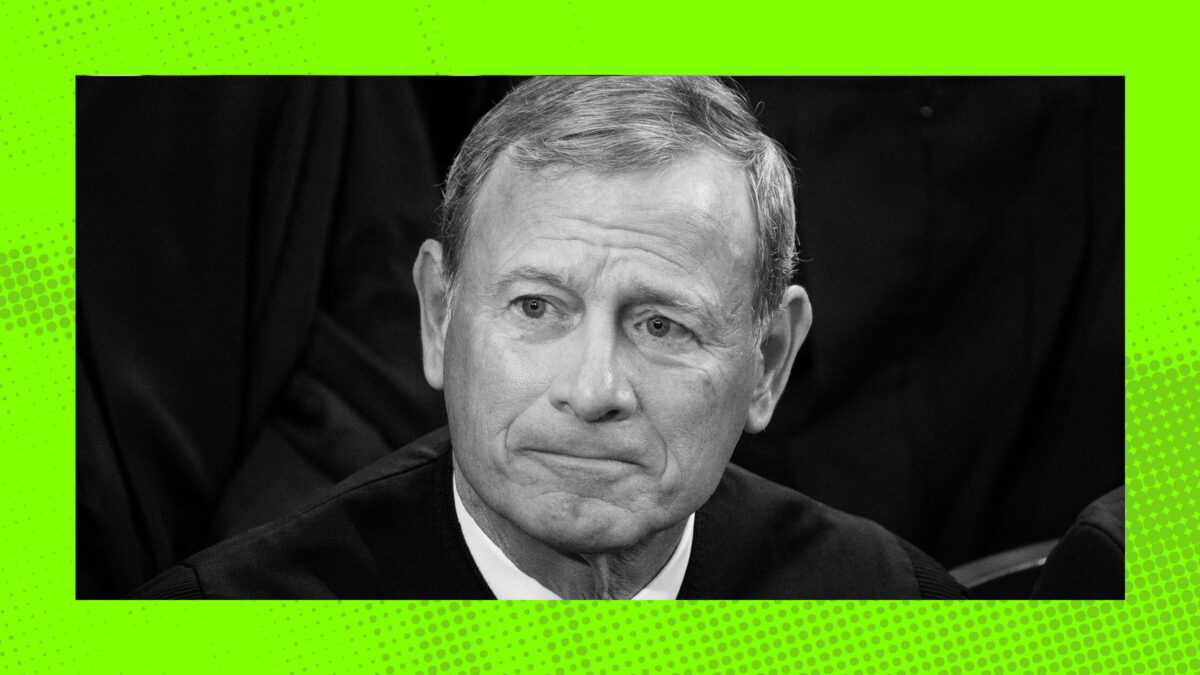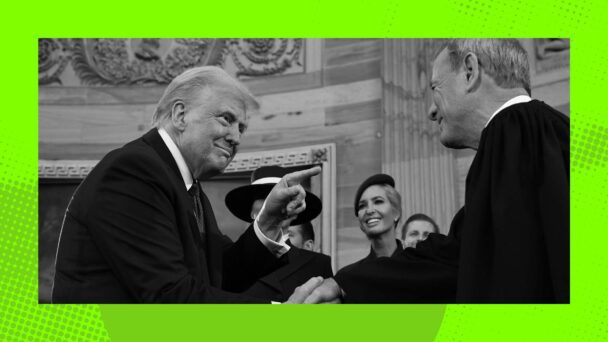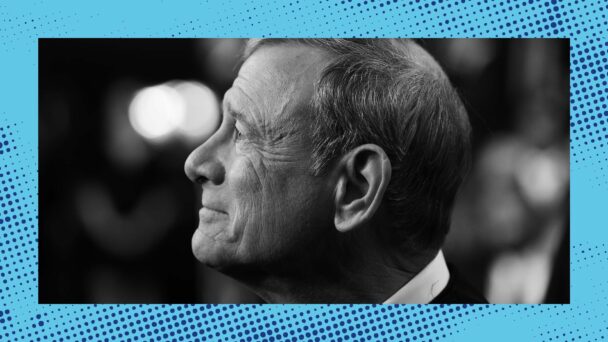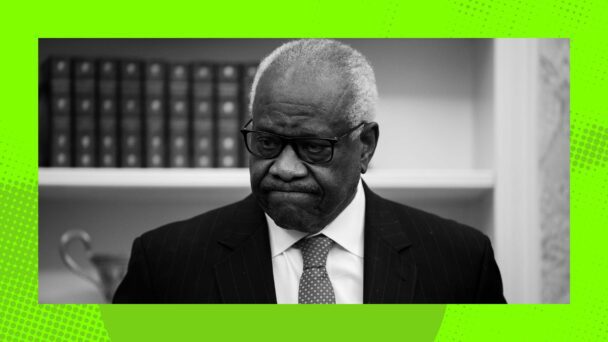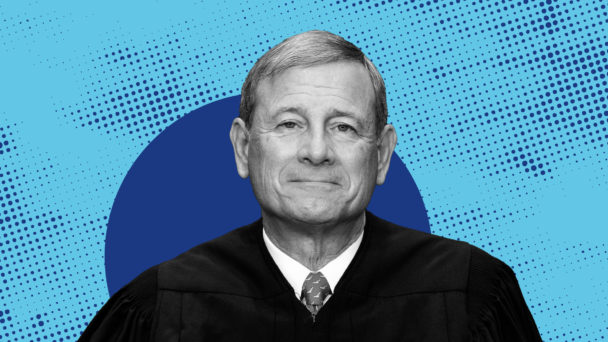The Supreme Court heard oral argument today in a blockbuster pair of cases challenging President Donald Trump’s authority to impose tariffs on the $4 trillion in goods and services imported to the United States every year. Tariffs are taxes on imports that are paid by importers, and for the past several months, Trump has wielded them as the primary weapon in his trade wars. As a practical matter, this means that Americans who purchase foreign goods like coffee, car parts, and children’s toys must pay extra for those things, unless and until Trump changes his mind. Researchers project that Trump’s tariffs will cost the average U.S. household at least $1,000 this year alone.
As a constitutional matter, Trump’s tariffs regime is allowing him to steal the taxing power that the Constitution gives to Congress. And for much of his second term, the Court has been happy to help the administration’s ongoing efforts to collapse the three branches of government into one. But at oral argument in Learning Resources v. Trump on Wednesday, a majority of the justices indicated that this particular power grab might be a bridge too far. During their colloquies with Solicitor General D. John Sauer, both Democratic and Republican appointees expressed deep skepticism about the idea that Congress could have possibly ceded such vast economic power to Trump alone. The president’s ideological allies are willing to approve a lot of lawlessness, but this time, Trump was literally asking them to pay too high a price.
The biggest legal hurdle Trump’s tariffs faced at oral argument was the “major questions doctrine,” a legal principle the Supreme Court invented to invalidate presidential actions that the justices deem “too significant” to be legal. The conservatives broke out the doctrine in 2021, for example, to strike down the Center for Disease Control’s evictions moratorium during COVID-19. Although Congress had given the CDC the legal power to make regulations to stop the spread of communicable illnesses, the Court said it “strains credulity” to think that that power would allow the CDC to keep millions of people safe during a deadly pandemic. The Court similarly deployed the doctrine in 2023 to block the Biden administration from implementing its student loan relief plan; again, although Congress gave the Department of Education the power to “waive” obligations related to financial assistance, the Court figured that that couldn’t encompass the cancellation of $430 billion in federal student loan debt.
Basically, the major questions doctrine has had one purpose in the hands of the Roberts Court: stymieing any kind of progressive policymaking. But today, Chief Justice John Roberts suggested for the first time that it may affect the Court’s favorite president, too: The major questions doctrine, he said, “might be directly applicable” to Trump’s tariffs. He balked when Sauer claimed that they are authorized under the International Emergency Economic Powers Act, a federal law permitting presidents to regulate imports to address “unusual and extraordinary threats.”
“You have a claimed source in IEEPA that had never before been used to justify tariffs,” said Roberts. And yet, he continued, “the justification is being used for a power to impose tariffs on any product from any country for any length of time.” Justices Neil Gorsuch and Amy Coney Barrett also raised concerns that, if the Court were to endorse Trump’s argument that Congress gave away its taxing power to the president in the IEEPA, Congress would never actually be able to retrieve it. “If Congress ever wanted to get the tariffing power back, it would have to have a veto-proof majority, regardless of the emergency,” Barrett said.
Not all of the conservative justices were this skeptical. Justices Brett Kavanaugh and Samuel Alito seemed more sympathetic to the argument that IEEPA’s language about regulating “importations” can encompass tariffs. Alito and Justice Clarence Thomas also both floated hypothetical scenarios in which presidents could only avert farfetched crises via tariff: If China were to hold a U.S. citizen hostage, Thomas wondered if IEEPA would allow a president to “impose a tariff for the purpose of leveraging his position to recover our hostage.”
Rejected Jack Bauer plotlines aside, though, the Republican justices were sufficiently hostile to the administration’s arguments on Wednesday to suggest that, together with the Democratic justices, there are enough votes to find the current tariff scheme unlawful. But please do not mistake this for a willingness to take a stand against Trump’s lawbreaking. What the Court’s conservatives have shown since Trump took office is that they have no problem letting the administration run roughshod over laws, just as long as that lawbreaking comes at the expense of people of color, not the stock market.
